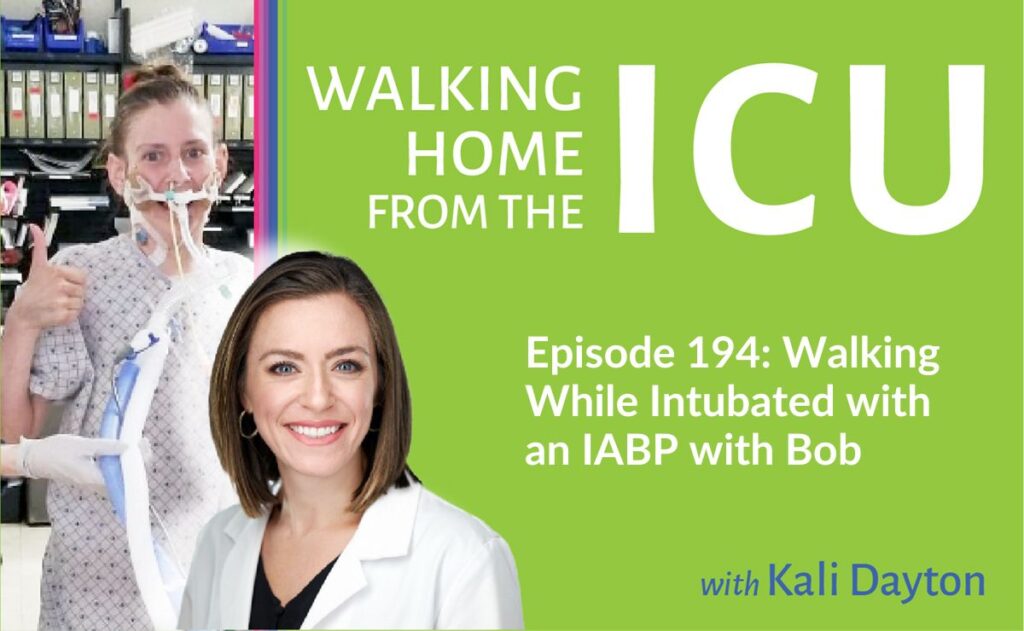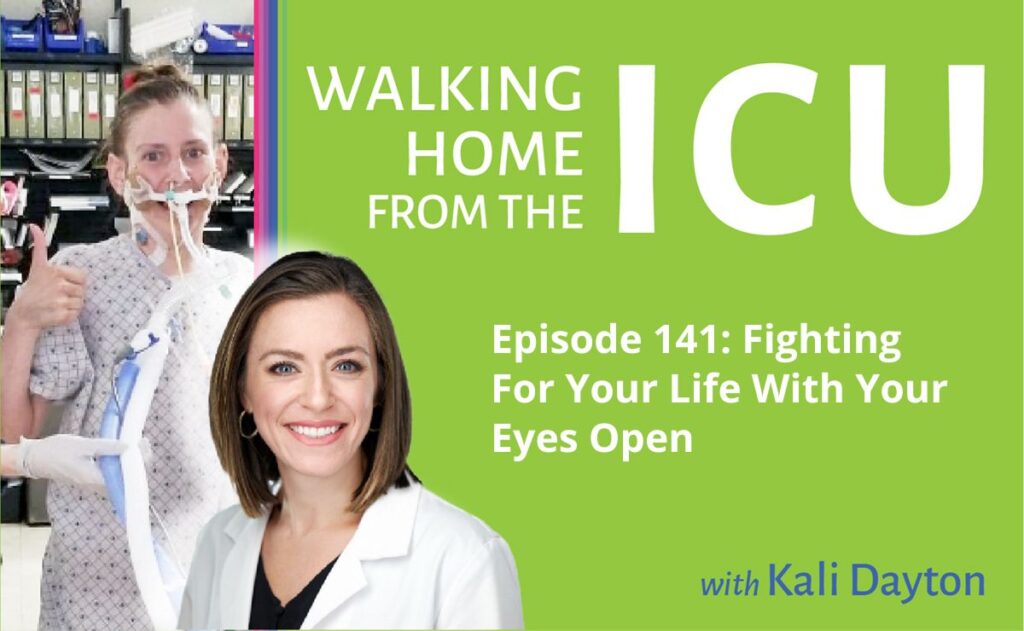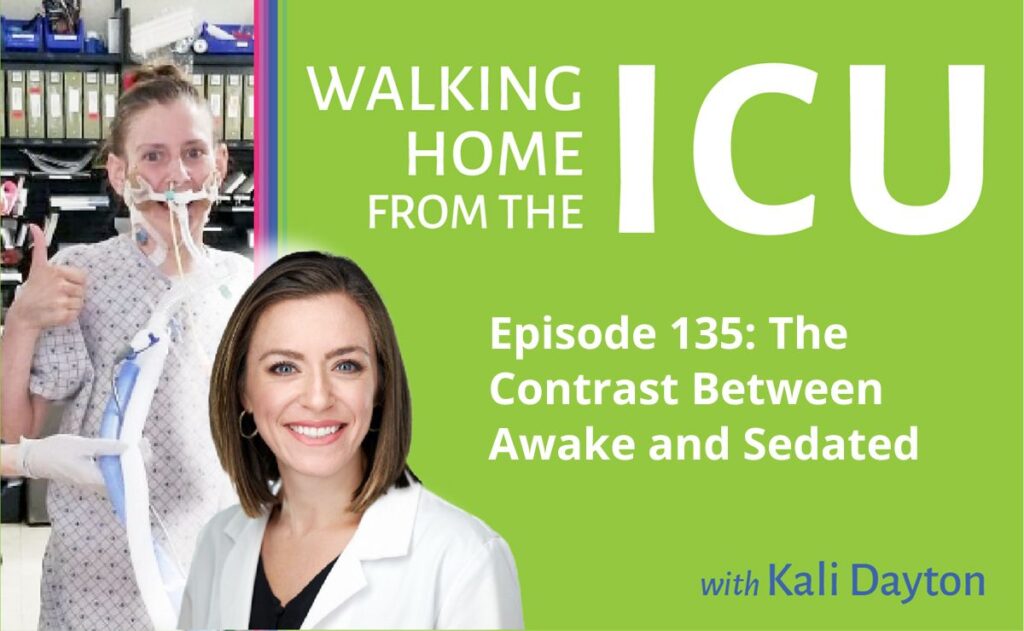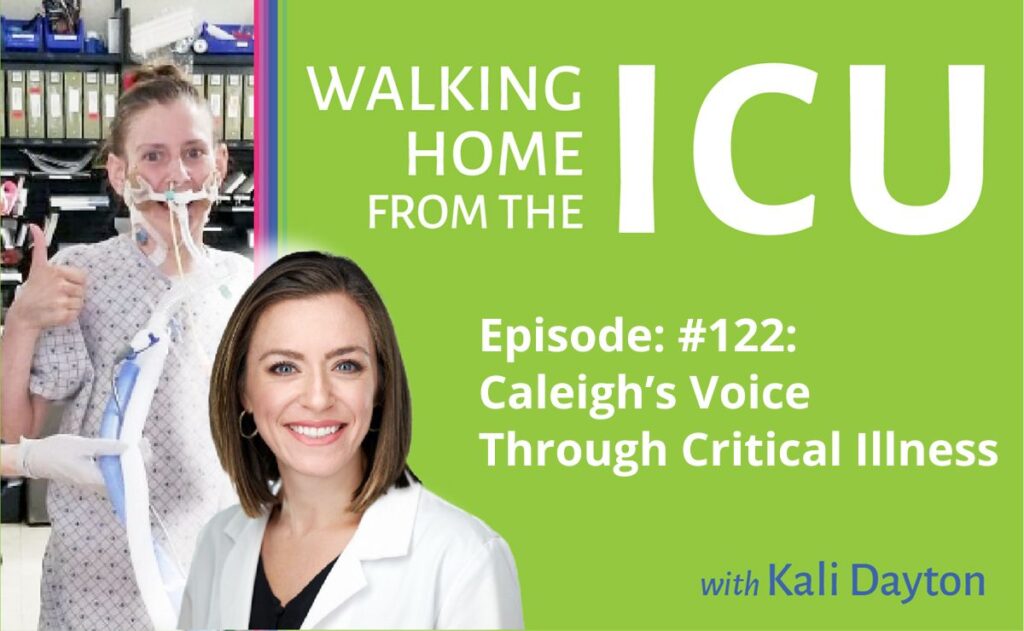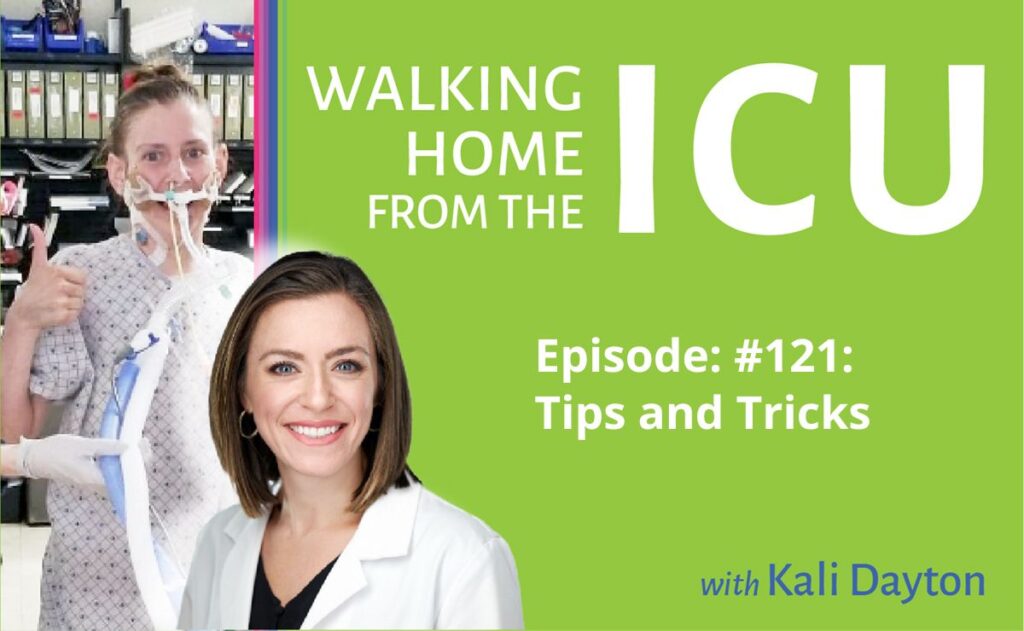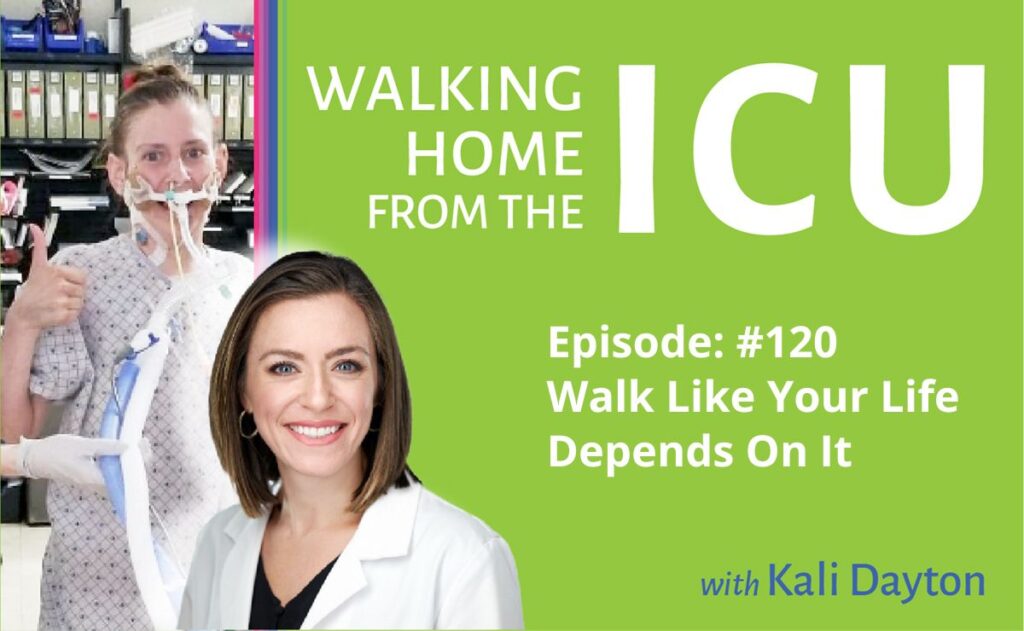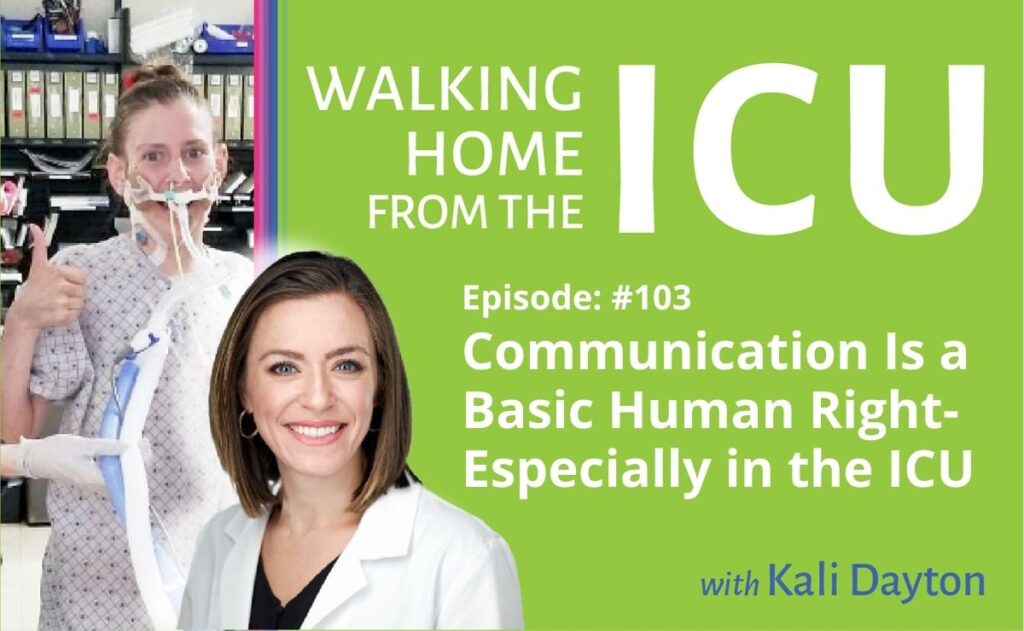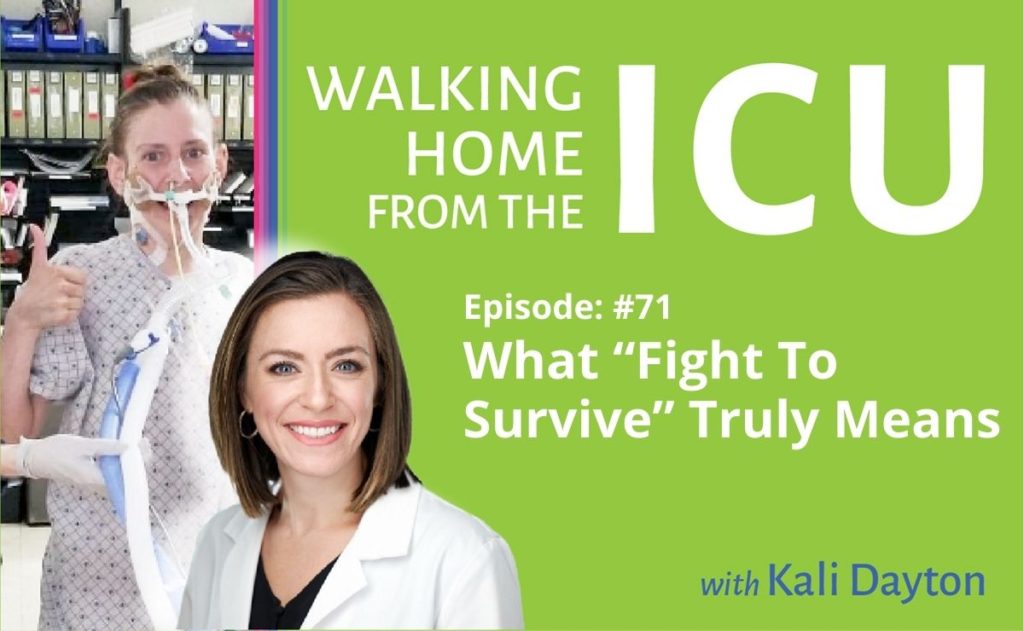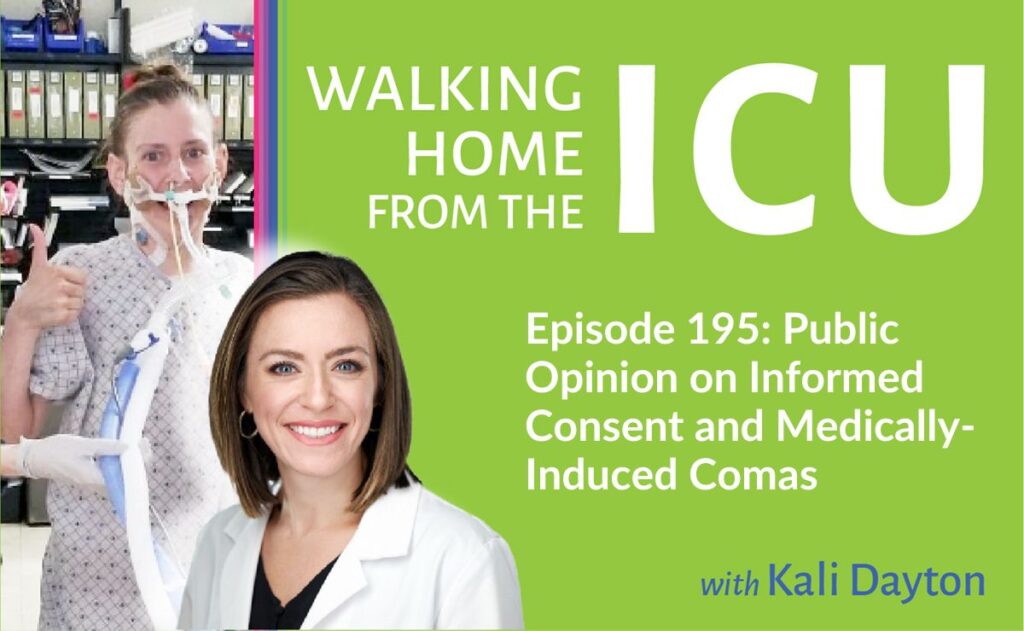
Episode 195: Public Opinion on Informed Consent and Medically-Induced Comas
If the choice between being sedated or awake and mobile was provided prior to intubation with the risks disclosed, what would the general public choose? Do patients and families have a right to know the risks of continuous sedation? I interviewed strangers in airports throughout the USA to learn more about their preferences. Episode Transcription
Learn More > from Episode 195: Public Opinion on Informed Consent and Medically-Induced Comas
